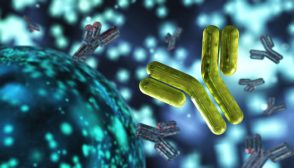Definition
noun
(parasitology) The stage in the life cycle of an endoparasite wherein it can initiate infection to its host
Supplement
A life cycle of a parasite pertains to its cyclic life history. It generally starts from the phase of a fertilized (embryonated) egg. The larva is then released from the egg to develop and reach adulthood, i.e. the reproductive phase in the life of a parasite. The life cycle of a parasite may be direct or indirect. A direct life cycle is one that which it completes its life cycle in a single host. An indirect life cycle is when a parasite requires another host for its development. The stage in the life cycle at which the parasite is able to initiate an infection to its host is referred to as an infective stage. It is in contrast to the diagnostic stage, i.e. the stage at which the parasite leaves the host, e.g. through excretion together with the stool, urine, or sputum. The infective stage of a parasite is one in which the parasite is capable of entering its host and continue its development within the host. Infection in connection with parasitology is defined as an invasion of the body by an endoparasite thereby inciting reaction from the host’s immune system. An endoparasite is a type of parasite that is found inside the body of the host. In contrast, the ectoparasite is one that thrives outside the body of its host. For example, Ascaris lumbricoides, a nematode, is an endoparasite that lives in the gut of its host. Its infective stage is the embryonated egg (as well as the second larval stage). Ingestion of the embryonated egg is one of the modes of transmission of this nematode.
See also:
Dictionary > Infective stage
You will also like...

Seed Plants
Seed plants are vascular plants. They differ from the other vascular plants in producing seeds that germinate into a new..

Freshwater Community Energy Relationships – Producers & Consumers
This tutorial looks at the relationship between organisms. It also explores how energy is passed on in the food chain an..

Lotic Communities & Algae
Lotic communities have conditions that are rather harsh for typical plants. Thus, the diversity of plant species in loti..

Biosecurity and Biocontrol
This lesson explores the impact of biosecurity threats, and why they need to be identified and managed. Examples to incl..

A Balanced Diet – Minerals and Proteins
Proteins and minerals can be derived from various dietary sources. They are essential for the proper growth and developm..

Passive and Active Types of Immunity
Lymphocytes are a type of white blood cell capable of producing a specific immune response to unique antigens. In thi..

